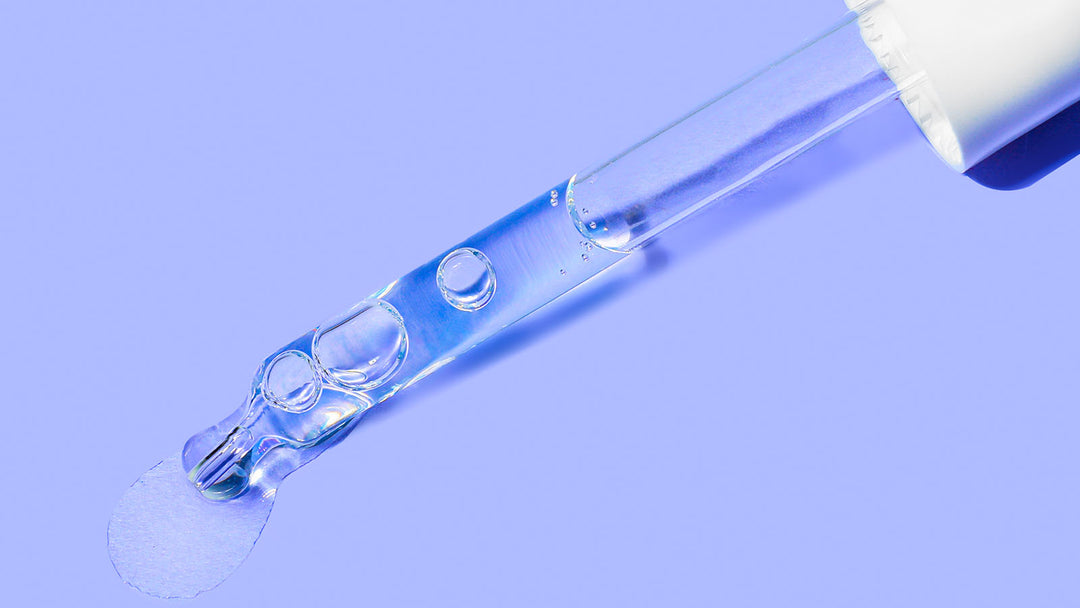What Is IV Therapy? Who Can Benefit from It?
In a fast-paced world filled with deadlines and hectic schedules, it's easy to get run down and feel less than our best. When we are feeling under the weather, the first thing we often think of is popping over-the-counter medication or grabbing a quick fix from the drive-thru. But what if there was a better way to help our bodies heal?
Imagine being able to get the nutrients your body needs through an innovative yet age-old method: intravenous (IV) therapy. This method has been around for centuries, and for good reason. It's a means to quickly administer all the necessary vitamins, minerals, and other nutrients exactly where they're needed.
What Is IV Therapy?
In short, IV therapy is the process of delivering nutrients directly into the bloodstream by injecting them into a vein. This is done with a small needle and a pouch of concentrated vitamins, minerals, and other nutrients that are mixed with sterile water. The solution is then slowly drip-fed into the body over the course of 30 to 60 minutes, depending on the size of the bag.
Over the years, this has been a popular way of dealing with serious illnesses and dehydration. By injecting the solution straight into the bloodstream, the body can receive a high concentration of medication that's necessary to fend off disease or rehydrate the body quickly.

This is particularly useful for those who have digestive issues or are unable to absorb nutrients properly. IV therapy can bypass the digestive system altogether and deliver the necessary nutrients directly to the cells.
Recently, IV therapy has slithered its way into the wellness mainstream as a way to prevent illness, refresh the body, and slow down the aging process. Apart from offering a quick solution to a specific health concern, this form of treatment can also be used as a preventative measure.
Who Can Benefit From IV Therapy?

Generally speaking, anyone who wants to improve their health and wellbeing can benefit from IV therapy. However, there are certain groups of people who may see more significant results.
The particular ingredients in each IV drip are tailored to meet the specific needs of each individual. Depending on what's included in the solution, IV therapy can help a number of people, including:
Individuals with Poor Diets
We all know that eating a balanced diet is essential for our overall well-being. But seeing as we're constantly on the go and often make unhealthy choices when it comes to food, it's not surprising that many of us are not getting the nutrients we so desperately require in order to function properly.
A lack of essential vitamins and minerals can lead to a number of health concerns, such as fatigue, headaches, poor skin health, and a weakened immune system. IV therapy can help to top up these levels and fill in the gaps in our diets.
Athletes and Sports Enthusiasts
Anyone who exercises regularly or takes part in strenuous physical activity may experience prolonged fatigue and muscle aches. This is due to the fact that when we exercise, our bodies use up a lot of nutrients, including vitamins, minerals, and electrolytes.
IV therapy can help to replenish these levels and allow the body to recover more quickly. Sure, you can rely on your diet alone to do this, but it's not always possible to receive all the nutrients you need from food, especially if you're training for a competition or marathon.
Immuno-Compromised Individuals
People who have a weakened immune system are more susceptible to getting sick. This is often due to a chronic illness, such as cancer or HIV, but can also be caused by stress, lack of sleep, and poor diet.
A non-functioning or weakened immune system can make it difficult for the body to fight off infection. IV therapy can help to improve its function by delivering a high concentration of vital nutrients directly into the bloodstream.
People Who Suffer From Hangovers
We've all been there: you have one too many drinks and wake up feeling like death the next day. Alcohol is a diuretic, which means it causes your body to lose more fluid than it takes in. This can lead to dehydration, which is one of the main causes of a hangover.
IV drips can help to quickly rehydrate the body and restore essential nutrients that have been lost. In the case of a hangover, it's best to act quickly and get an IV drip as soon as possible. The sooner you get more liquids into your body, the better you'll feel.
People Who Are Stressed
If you're constantly feeling stressed, it's likely that your body is not functioning as well as it should be. Constant stress can lead to a number of conditions, including insomnia, anxiety, and depression.
Luckily, IV drips offer the solution to this problem. Vitamin C is one of the main ingredients in many IV therapy solutions, and it's known to be a powerful stress-buster. It works by reducing the stress hormone cortisol in the body.
Pregnant Women
Pregnancy can be quite a difficult time, with around 70% of pregnant women suffering from morning sickness. This is caused by a number of factors, including hormonal changes, low blood sugar levels, and dehydration.
Although there's no cure for morning sickness, IV therapy can help ease the symptoms. Frequent trips to the bathroom will imminently lead to dehydration, especially if you're not drinking enough fluids. This can make the symptoms of morning sickness worse. However, by supplying the body with liquids and nutrients through an IV drip, you're effectively rehydrating and nourishing your body, which will undoubtedly make you feel better.
Anyone Looking to Improve Their Overall Health
IV therapy is not just for those who are ill or have certain medical conditions that require treatment. If you're looking for a way to improve your overall health and wellbeing, then IV therapy could be the answer.
Just like with any other form of treatment, it's always best to consult with a medical professional before undergoing IV therapy. They will be able to assess your individual needs and recommend the best course of treatment.
What Are the Risks Associated With IV Therapy?

While it's a mostly safe and effective form of treatment, there are certain risks associated with this form of treatment. It's always best to be aware of these risks before going ahead with any kind of procedure to ensure that you make an informed decision.
The likelihood of any complications arising from IV therapy is relatively low. However, as with any medical procedure, there are always risks involved. The most common ones associated with this treatment include:
Infection
When any foreign object is introduced into the body, there's always a risk of infection. In this case, it's a needle that's inserted into your veins. To minimize the risk of infection, make sure that the person carrying out the procedure uses sterile equipment and techniques.
If you notice any redness, swelling, or pain at the injection site, this could be a sign of infection. It's important to seek medical attention as soon as possible if you notice any of these indicators in order to avoid further complications.
Allergic Reaction
Getting an allergic reaction to an IV drip is quite rare, but it can happen. Talk to the person administering drip about any allergies you have before the procedure to minimize any inconveniences.
If you do have an allergic reaction, the symptoms will usually appear within minutes of the drip being administered. These can range from a mild rash to a more severe reaction, such as difficulty breathing. In both scenarios, you'll be given medication that will counteract the reaction and help you to feel better.
Infiltration and Extravasation
When the needle that's used to insert the IV drip isn't placed properly, it can cause the fluid to leak or seep out of the vein. This is known as infiltration, and it can cause pain, swelling, and bruising at the injection site.
Extravasation is a more serious complication that can occur if the IV drip contains medication that's harmful or irritating to the surrounding tissue. This can cause serious damage, so it's important to monitor the injection site for any signs of infiltration or extravasation.
The symptoms may show within minutes of the drip being inserted. The professional carrying out the procedure will be able to tell if the needle has been placed correctly, so there's no need to worry.
Speed Shock
This is a very rare complication that can occur if the drips coming from the IV are too fast. It can cause a sudden drop in blood pressure, which can lead to fainting, dizziness, and lightheadedness.
While most professionals know how to avoid this complication, it's always best to be prepared. If you start to feel faint or dizzy at any point during the procedure, make sure to tell the person that’s inserted your drip so that they can slow it down or check up on your condition.
How IV Therapy Helps the Body to Fight Disease Faster

Instead of sticking to traditional medication, many people are now turning to IV therapy to help them fight disease. Since the drip goes directly into your bloodstream, it can help to speed up the process of getting rid of the infection.
Plus, IV therapy can also be used to deliver medication that's not available in pill form. Some manufacturers don't offer tablet or capsule versions of their drugs, so this is the only way to get them.
Some of the most common ingredients in IV drips include vitamins B and C, as well as minerals such as magnesium and calcium. They may also contain dextrose and a saline solution. The former is a type of sugar that helps to replenish energy levels, while the latter is used to keep the body hydrated.
Lastly, certain antioxidants can also be added to the mix. These work to protect the cells from damage and can help to reduce inflammation. The specific kind of antioxidant will depend on the condition being treated.
Once the drip is inserted, the medication will start to work immediately. You'll usually feel the effects within minutes, and they should last for several hours. This will depend on the type of medication that's being used and the dose that's been prescribed.
You should be careful not to make any sudden movements or to do anything that could dislodge the needle. Keep your arm still and try to relax as much as possible to let the medication do its magic. If you do have to move or adjust your position, be very gentle so as not to disturb the needle.
After the drip has been in for a while, you may start to feel a bit restless or itchy. This is normal and nothing to worry about. The sensation should go away within a few minutes. If it doesn't, or if it starts to become unbearable, let the person giving you the IV know so that they can modify the flow.
When the entirety of the medication has been administered, the needle will be removed and a bandage will be placed on the injection site. There might be minor bleeding or bruising, but this is completely normal. Bleeding should subside within a few minutes, and bruises will usually fade within a couple of days.
Depending on your particular condition, you may be required to repeat the process several times. This will generally be discussed with you before you begin treatment to ensure that you're comfortable with the procedure. Once you've done that, you can rest assured that the process will be smooth and complication-free.
To Summarize
All things considered, IV drips are a quick, convenient and effective way to treat a wide range of diseases. Despite the minor risks, the benefits far outweigh the disadvantages, as long as you're under the care of a qualified professional.
If you're considering this form of treatment, you'll be able to experience the benefits for yourself in no time. Doing your research beforehand is always a good idea, so you know what to expect. In any case, this form of treatment is definitely worth considering if you're looking for a faster way to recover from illness or you simply want to maintain good health.




